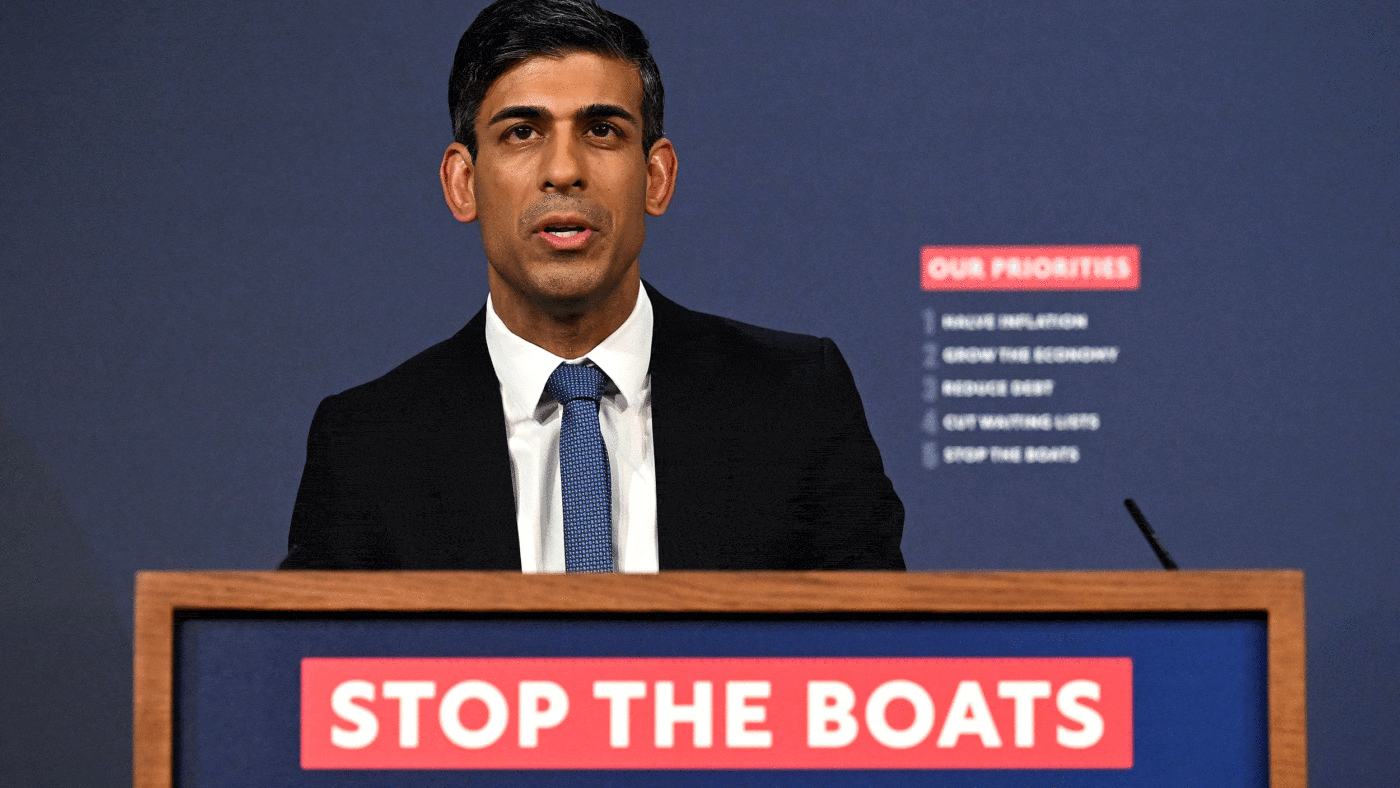If the ‘Stop the Boats’ slogan is beginning to sound wearingly familiar, it’s because it’s not new. It was first used by Australian Prime Minister Tony Abbott, whose victory in a 2013 election campaign heavily focused on migration Rishi Sunak hopes to emulate. But if Sunak also wishes to copy the success of Australia’s offshored asylum system, then there’s one crucial thing missing from his approach.
Like the UK in 2023, Australia before 2013 experienced a dramatic upsurge in the number of illegal boat crossings. Under the 2007-13 Labor Government, which had abandoned the former Howard Government’s offshore processing regime, arrivals increased from 7 boats carrying 161 migrants in 2008 to 300 boats carrying 20,587 migrants in 2013. As with attempted Channel crossings, not everyone survived the hazardous journey. In one especially tragic case, 50 asylum seekers died after their vessel was dashed against the rocks off Australia’s Christmas Island.
To address the problem, within 11 days of taking office, Tony Abbott introduced Operation Sovereign Borders, which remains in place. Under it, asylum seekers who reach Australia are processed offshore on Nauru, a bankrupt Pacific microstate of just 21 km², and previously in Papua New Guinea. Like the new British approach, those found to be genuine refugees cannot settle in Australia. Unlike the British scheme, however, a key plank of Australian policy is the forced turning back of any vessels trying to reach Australian shores, something the Royal Navy refuses to do.
Operation Sovereign Borders has, as a policy package, undoubtedly achieved its main objective – since 2013 boat arrivals have all but stopped and there are no further reported deaths at sea. Politically, its tough stance proved a great asset for the then Australian Coalition Government. The 2007-13 Labor Government’s failure to control boat arrivals was a key issue at the 2013 election and, unsurprisingly, the Australian Coalition Government went on to enjoy a substantial polling lead on the topic. Having been burned on the issue in 2013, the Australian Labor Party supported turnbacks at the 2022 election, and shows no signs of reversing course now they are in Government.
Another interesting effect of Australia’s policy has been to secure support for, or at least acquiescence to, high levels of legal migration. With concerns over illegal arrivals assuaged by a sense of control over national borders, Australia has among the highest proportion of foreign-born residents among major western nations.
The UK PM and Home Secretary should not take much comfort from Australia’s success, however. The absence of forced towbacks is particularly significant. This matters because, even after a decade, boats still try to reach Australia and would otherwise continue to land. Even if, however, the Royal Navy were onside, the much smaller distance between France and the mainland UK makes it far more likely that at least some vessels would complete the crossing regardless. Given that the English Channel is one of the busiest shipping lanes in the world, it would be far more dangerous to attempt turnbacks there than in the Indian Ocean. Finally, sending back vessels would also anger Paris, without whose cooperation the Channel migrant crisis is unlikely to be solved.
Further, with no justiciable human rights protections equivalent to the UK’s membership of the ECHR, Australia can shield itself from legal challenges in ways that Britain cannot. This is especially relevant given the dreadful conditions at Australia’s offshore processing centres.
With a low probability of success, the odds of the UK Government generating political capital from the boats issue are slim and any further arrivals will merely demonstrate the Government’s failure to achieve its own loudly stated objective. Indeed, recent polling suggests that public confidence in the UK’s ability to ‘stop the boats’ is already waning.
Even if it succeeds, stopping the boats is no electoral panacea. While asylum seeker policy aided the Australian Coalition Government, perhaps more crucial to its political triumph was that the Labour Party in 2013, like the Conservative Government since 2022, had been tearing itself apart.
Tough policies to control illegal migrant crossings may have worked for Australian conservatives, but unless the UK manages to overcome serious geographical, legal and practical obstacles, do not expect the same to happen here.
Click here to subscribe to our daily briefing – the best pieces from CapX and across the web.
CapX depends on the generosity of its readers. If you value what we do, please consider making a donation.


